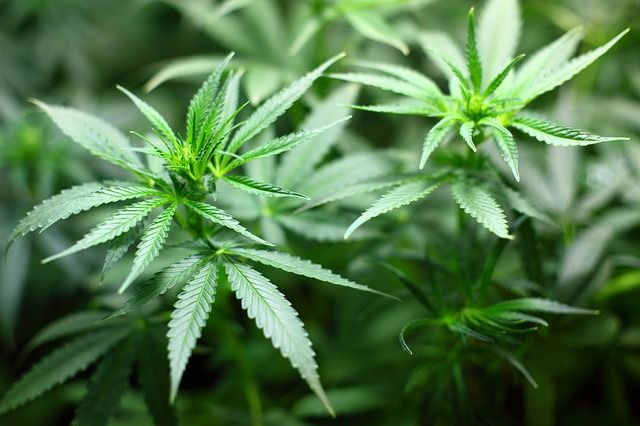Can Medical Marijuana Curb Opioid Epidemic? Cannabis Could Help Withdrawal, Reduce Drug Cravings, Review Finds

Medical marijuana could help those struggling with addiction to heroin and other opioids to turn their lives around, says Yasmin Hurd of the Icahn School of Medicine at Mount Sinai in a new review published in Trends in Neurosciences. Prior research has found that cannabinoids could reduce cravings and ease opioid withdrawal symptoms.
In the United States, fatalities related to opioids are rising drastically — in 2014, about 18,893 overdose deaths in the U.S. were related to prescription painkillers, and 10,574 deaths were related to heroin, the American Society of Addiction Medicine reported.
Read: Can Medical Marijuana Curb Opioid Epidemic? US States With Legal Weed Have Decreased Opioid Abuse
Hurd's report referenced findings from previous animal studies examining the effects of cannabis on opioid addicts. The results showed evidence that cannabinoids could have “long-lasting therapeutic effects,” according to Medical XPress. A specific type of cannabinoid, called cannabidiol, has been seen to reduce heroin cravings in the brains of animals.
Hurd also cited a small pilot study from 2015, which revealed cannabidiol potentially aids in relieving anxiety related to cravings in heroin users trying to quit.
"We have to be open to marijuana because there are components of the plant that seem to have therapeutic properties, but without empirical-based research or clinical trials, we're letting anecdotes guide how people vote and policies that are going to be made," Hurd, who studies how both cannabinoids and opioids act on the brain, stated in the report.
"It's one of the first times in our history that we're making laypeople and politicians decide whether things are medicinal or not. If we want to say something is medical marijuana, we have to prove that it is medicinal," she explained, according to Medical Xpress.
Read: Painkiller Dangers: More Children Are Being Poisoned By Prescription Opioids
Back in September, a study also found that fewer people are using opioids in states that have legalized medical marijuana, Medical Daily reported.
Researchers examined federal crash data in 18 states over the period from 1999 to 2013. The results showed that states with legal weed during this period saw an overall reduction in opioid involvement in fatal car accidents, especially among drivers ages 21 to 40.
Medical marijuana is currently legal in 28 states and the District of Columbia.
Source: Hurd YL. Cannabidiol: Swinging the Marijuana Pendulum From ‘Weed’ to Medication to Treat the Opioid Epidemic. Trends in Neuroscience. 2017.
Read Also:
The Price Of Painkiller Addiction: US Opioid Epidemic Has Cost An Estimated $78.5 Billion
The Science Of Acupuncture: Treatment Activates Opioids, Lowers Hypertension
Published by Medicaldaily.com



























